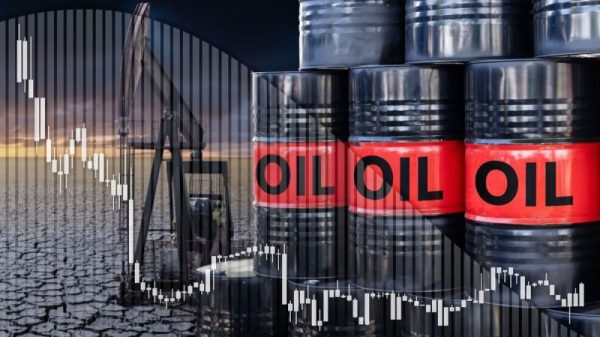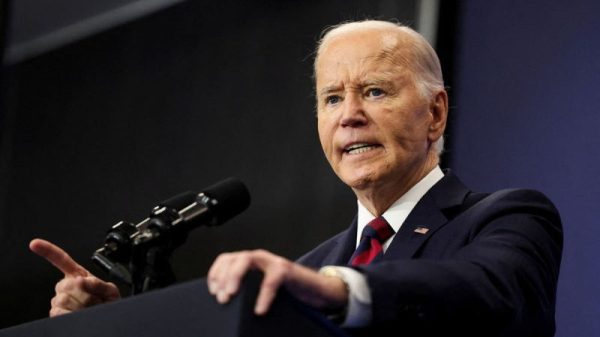Climate chaos spared no region this year. Canada burned, the US Southwest boiled, a Libyan city was swept away by floods and global heat was, as one scientist said, “gobsmackingly bananas.”
Climate records fell like dominoes, and more are predicted — it is all but certain that 2023 will be the hottest in recorded history.
And yet, even as the climate crisis inserts itself viscerally into people’s lives, experts say the year has seen alarming backsliding on climate action. Green policies have been watered down, huge new oil and gas projects have been greenlit and coal has had something of a resurgence.
A slew of new reports showed countries are wildly off track on limiting global warming to 1.5 degrees Celsius above pre-industrial levels. Instead, the world is on course for warming of up to a catastrophic 2.9 degrees, according to the United Nations Environment Programme — and that’s even if current climate policies are met.
As countries gather in Dubai for the UN’s COP28 climate summit, there are “high expectations,” said Harjeet Singh, the head of global political strategy at nonprofit Climate Action Network International. “At the same time, we are seeing much lower commitment from countries.”
While one year alone cannot determine the success or failure of global climate action, said Kaveh Guilanpour, vice president for international strategies at the non-profit Center for Climate and Energy Solutions, “the world is still not treating this as an emergency, and that’s the fundamental problem.”
Huge oil and gas projects approved
Fossil fuels had a strong year in 2023, with several major projects approved, despite a warning from the IEA two years ago that there can be no more investment into new fossil fuel projects if the world is to meet international climate goals.
“If you’re expanding fossil fuels, you are backtracking,” said Singh.
Yet in March, the Biden administration approved the massive and controversial Willow oil drilling project in Alaska. The area to be drilled holds 600 million barrels of oil, enough to release 9.2 million metric tons of planet-heating pollution, according to the administration’s figures. That’s equivalent to adding 2 million gas-powered cars to the roads.
The decision “moved us in the opposite direction of our national climate goals” Erik Grafe, an attorney for environmental law group Earthjustice, said in a statement at the time.
On the other side of the Atlantic, the UK announced plans for an expansion of oil and gas in the North Sea in July. The government pledged to grant hundreds of new drilling licenses, in a move one climate advocate described as sending “a wrecking ball through the UK’s climate commitments.”
Fossil fuel expansion by wealthy countries is set to continue long into the future. Just five developed countries — the US, UK, Canada, Australia and Norway — are responsible for 51% of oil and gas expansion planned between 2023 and 2050, according to a September report from campaign group Oil Change International.
“If this oil and gas expansion is allowed to proceed, it would lock in climate chaos and an unlivable future,” the report noted.
Weakened climate policies
An unexpected battle in Europe in early spring over a ban on the sale of new gas and diesel powered cars set the tone for a fraught year for getting new climate policy on the books
The bloc’s law had seemed like a done deal, but Germany objected at the last minute, and added a loophole that would allow the sale of combustion engine cars beyond the 2035 deadline — as long as they run on synthetic fuels.
Across Europe, there has been pushback on green plans. An attempt in Germany to introduce a law to replace fossil fuel-powered heating systems with more efficient systems that can be run on renewable energy was watered down after widespread opposition was stoked in part by the far right.
In the UK, Prime Minister Rishi Sunak announced a dilution of climate pledges in September. The government’s own independent climate advisory body responded by saying it “made meeting future targets harder.”
While many countries insist they are still committed to net zero by 2050 — meaning they plan to remove at least as much planet-warming pollution from the atmosphere as they produce — “targets are only valuable if they are followed up with implementation,” said Joeri Rogelj, a climate professor at Imperial College London.
A coal bonanza
Global consumption of coal — the single biggest contributor to climate change — reached an all-time high in 2022, and demand is set to remain near record levels this year, according to the IEA.
In the first half of 2023, China was approving new coal projects at a rate equivalent to two large coal plants every week, according to an analysis from Global Energy Monitor. This coal “spree,” as the report called it, was partly triggered by concerns over power shortages during blistering heat waves.
China has pledged to peak emissions by 2030 and while the country has made giant strides on renewable energy, experts say its continued reliance on coal threatens its climate progress.
“China is making the path towards its energy transition and climate commitments more complicated and costly,” Flora Champenois, co-author of the report and research analyst at GEM, said in a statement.
It’s not just China. The US may have reduced its domestic coal consumption, but it has ramped up exports. In the first eight months of this year, US thermal coal exports reached their highest level since 2018, driven by demand from Asia.
And in the wake of Russia’s invasion of Ukraine, some countries have turned to coal in the scramble to replace Russian oil and gas. Germany temporarily reopened coal plants and in October, the government approved bringing coal plants back online over winter to avoid shortages.
Experts say this scramble for coal — even if short term — has also strained relations between the West and the Global South.
“The first time that the developed world has a bit of a challenge, they immediately backtrack and they say ‘oh, because it’s exceptional, we’re going to reopen coal-fired power plants,’” Rogelj said.
Fossil fuel companies dialed down green plans
Big oil companies made eye-popping profits in 2022. BP, Chevron, ExxonMobil, Shell and Total pulled in a record $199.3 billion that year as they benefited from soaring oil and gas prices following Russia’s invasion of Ukraine.
But the windfall did not translate into huge boosts for clean energy plans. Instead, many announced expansion of fossil fuels and, for some, a dialing down of green pledges.
BP scaled back the ambition of a commitment it had made only three years ago to slash oil and gas production by 40% by 2030. In February, it announced it would instead aim for a roughly 25% reduction by the end of the decade.
Despite record profits, Shell announced in February that it would keep renewables spending steady, despite having increased it in previous years.
And at a June conference, Exxon head Darren Woods said he aimed to double the amount of oil produced from the company’s US shale projects over five years. The company also dropped a years-long project to develop fuel from algae, previously a much-touted part of its green ambitions.
The three companies maintain they are committed to the clean-energy transition.
An Exxon spokesperson said the company was “embracing” the challenge to reach net zero. “We’re doing our part by investing $17 billion in lower-emission initiatives through 2027.”
But according to a November IEA report, the oil and gas industry must rapidly scale up its ambitions. Around 50% of its total capital spending needs to go toward clean energy projects by 2030, according to the report. At the moment, they commit just 2.5%.
“The oil and gas industry is facing a moment of truth at COP28 in Dubai,” IEA executive director Fatih Birol said in a statement. “With the world suffering the impacts of a worsening climate crisis, continuing with business as usual is neither socially nor environmentally responsible.”
Glimmers of hope
It would be a mistake to suggest everything is going in the wrong direction, Guilanpour said. “You need to think about trajectories, and on those trajectories, you’re going to get bumps in the road.”
The relationship between the US and China has long been bumpy, but its cooperation on climate change has been a glimmer of hope. In mid-November, the countries pledged a major ramp-up in renewable energy, and agreed to economy-wide reduction of all greenhouse gases — not just carbon dioxide — the first time China officially stated its intent to do so.
While 2023 did see backsliding, the long-term pathway is heading in the right direction — albeit much too slowly, said Claire Fyson, co-head of the climate policy team at Climate Analytics, a climate science and policy institute.
But, she added, “we’re still in very dangerous territory.”







































